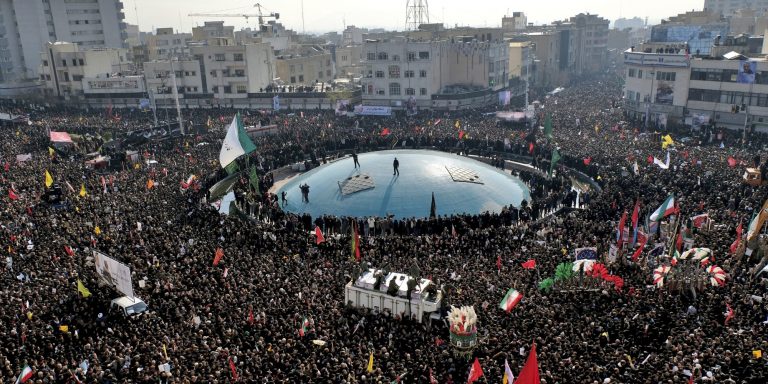INTELBRIEF
January 10, 2020
IntelBrief: Counterterrorism Liaison Fallout from Assassination of Qassim Soleimani

- The assassination of IRGC-QF commander General Qassim Soleimani will have significant adverse effects on U.S. counterterrorism liaison relationships.
- The impact that the strike might have on U.S. counterterrorism efforts in Iraq could be dire, and fallout will likely reverberate beyond Iraq and affect relationships region-wide.
- Washington’s public proclamations and cavalier attitude surrounding the Soleimani strike will inevitably put some liaisons in a precarious position.
- Misleading, false, and contradictory statements by the U.S government will give liaison partners even more reasons to hedge their bets.
.
The only certainty arising from the U.S. drone strike that killed Maj. Gen. Qassim Soleimani, the head of Iran’s Islamic Revolutionary Guard Corps (IRGC), is the forthcoming period of volatility and tumult. Tensions are particularly acute following Tehran’s retaliation for Soleimani’s death, which consisted of the IRGC firing a dozen ballistic missiles at two Iraqi bases where American troops are based. This uncertainty applies to myriad issues. How will spiraling violence affect the already tenuous JCPOA Iran Nuclear deal? What impact will the loss of Soleimani have on Iran’s quest for regional dominance? Does this recent exchange increase the chances for a broader conflict in the Middle East, or might it provide a potential opening for diplomacy? This uncertainty applies to the robust portfolio of U.S. counterterrorism operations in the Middle East, particularly the invaluable foreign liaison partnerships that form the cornerstone of American counterterrorism strategy in the region. From Jordan to Saudi Arabia and Kuwait to Iraq, the United States is deeply embedded with those countries’ intelligence agencies, which are part of these nations’ militaries.
There has already been some impact on counterterrorism operations. The multilateral Global Coalition to Defeat ISIS has suspended its Syrian operations due to the increased threat from Iranian forces or proxies. NATO announced that it would suspend its training of Iraqis. It is unclear how long this ‘pause’ will last. The Islamic State is already well into the next phase of rebuilding its operational and organizational capabilities in both Syria and Iraq. The interruption of counterterrorism operations against the Islamic State can avoid lasting negative impacts if it is relatively short in duration, but if the interregnum lasts months, then valuable intelligence gathering capabilities could wither, which would be a boon for ISIS.
In Iraq, the United States has once again established significant working relationships with some Iraqi counterparts. There has always been friction between the two parties, including tensions that have occasionally risen in the last few years as Iran’s influence in Iraq has grown more pronounced. The killing of Soleimani will cause significant disruption to U.S.-Iraqi counterterrorism operations and liaison partnerships. Iran is far from universally admired in Iraq, but the sense that the United States has blatantly violated Iraqi sovereignty will, at least in the short term, overwhelm most other sentiments and points of view as it relates to working with Washington to achieve mutual counterterrorism objectives.
The farther one gets from Iraq, the impact of the strike on U.S. counterterrorism liaison relations will become less significant, with perhaps the exception of increasing the chance of additional Iranian reprisals against U.S. military personnel located in these countries. Many of these services are deeply involved with countering Iranian influence on their own soil and anti-Iranian sentiment is prevalent. The U.S. has made close collaboration by its Middle Eastern liaison partners more uncomfortable by publicly claiming credit for the drone strike at the Baghdad International Airport. Far from keeping adversaries guessing and giving liaison partners a hint of plausible deniability with their people, the United States, at the highest levels, has boasted about the strike, apparently assessing that this will do more to intimidate its adversaries than it will to embarrass or enfeeble its liaison partners.
.
For tailored research and analysis, please contact: info@thesoufancenter.org